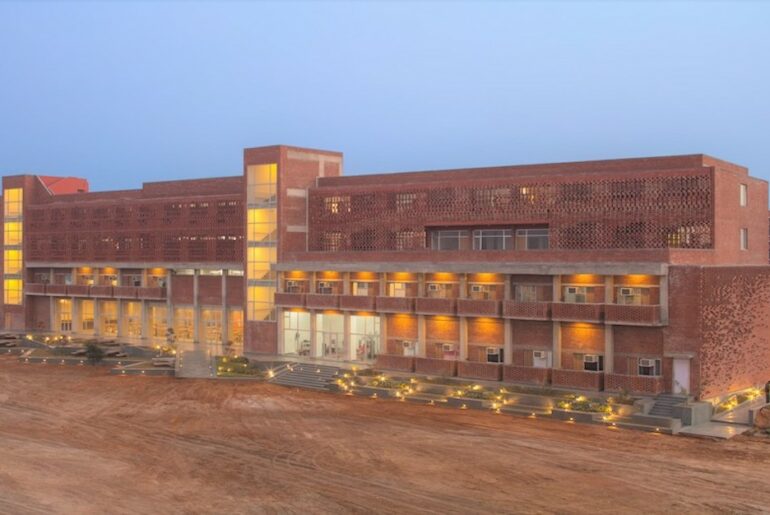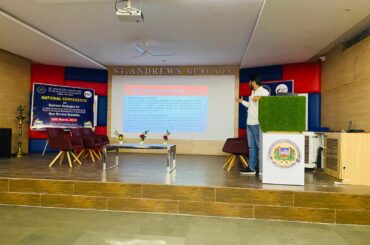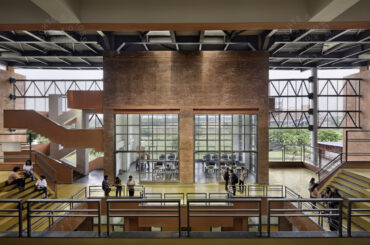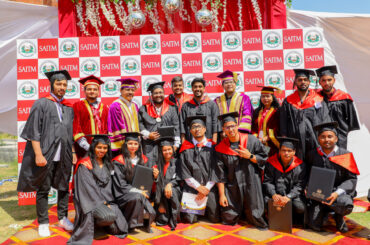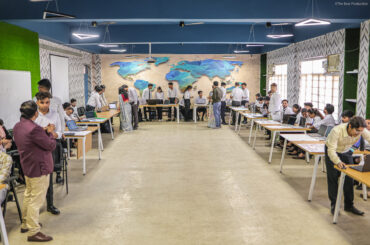B Tech Syllabus
The B Tech syllabus encompasses a comprehensive range of subjects designed to provide a solid foundation in engineering principles and specialized knowledge in specific fields.
Core subjects typically include Mathematics, Physics, and Chemistry, followed by engineering-specific courses such as Mechanics, Thermodynamics, Material Science, and Circuit Theory.
As students progress, they delve into advanced topics relevant to their chosen discipline, such as Computer Science, Electronics, Civil, Mechanical, or Chemical Engineering.
The curriculum also includes practical laboratory sessions, project work, internships, and elective courses, ensuring a balanced blend of theoretical understanding and hands-on experience.
This diverse and rigorous syllabus aims to equip students with the technical skills, analytical abilities, and innovative mindset necessary for successful engineering careers.
Some of the most opted courses in India and St. Andrews college or different Engineering college or Management colleges are as follows:-
Years Wise B Tech Syllabus
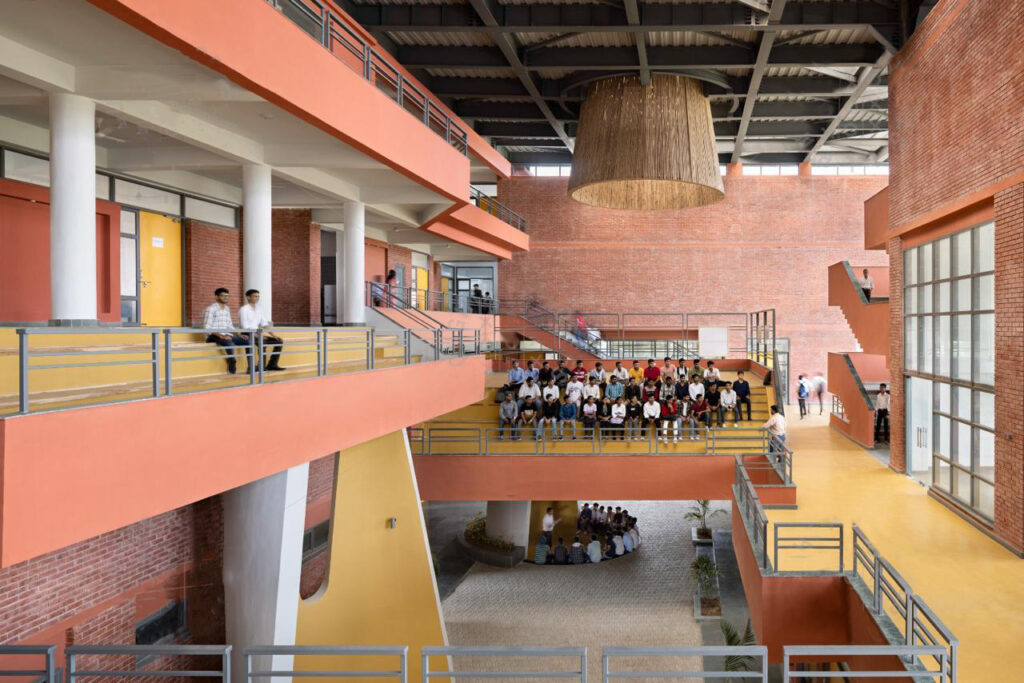
Here’s a year-wise breakdown of the typical B Tech syllabus:
First Year
- Mathematics: Calculus, Linear Algebra, Differential Equations
- Physics: Mechanics, Optics, Electromagnetism
- Chemistry: General Chemistry, Applied Chemistry
- Basic Engineering: Engineering Mechanics, Engineering Graphics, Basic Electrical and Electronics Engineering
- Programming: Introduction to Programming (C, Python)
- Communication Skills: Written and Oral Communication
Second Year
- Core Subjects: Discipline-specific core courses begin
- Computer Science: Data Structures, Algorithms
- Electrical Engineering: Circuit Theory, Electronics
- Mechanical Engineering: Thermodynamics, Fluid Mechanics
- Civil Engineering: Structural Analysis, Building Technology
- Mathematics and Applied Science: Advanced Mathematics related to the chosen discipline
- Electronics and Instrumentation: Introduction to Electronics and related instrumentation techniques
- Environmental Studies: Basic concepts and applications in environmental science and engineering
Third Year
- Advanced Core Subjects:
- Computer Science: Operating Systems, Database Management Systems
- Electrical Engineering: Power Systems, Control Systems
- Mechanical Engineering: Machine Design, Manufacturing Processes and Tech Mechanical Engineering
- Civil Engineering: Geotechnical Engineering, Transportation Engineering
- Professional Electives: Courses chosen based on specialization and interest
- Engineering Economics: Introduction to economic concepts relevant to engineering projects
- Engineering Design: Practical design projects and principles applied to the chosen discipline
Fourth Year
- Specialized Electives: Advanced courses in specialized areas of the discipline
- Project Work: Comprehensive final year project involving research, design, and implementation
- Industrial Training/Internship: Practical exposure to industrial practices and project management
- Seminar and Workshops: Guest lectures, seminars, and workshops on contemporary issues and advancements in engineering
- Entrepreneurship: Basics of entrepreneurship and startup culture in engineering
B Tech Engineering Course Details
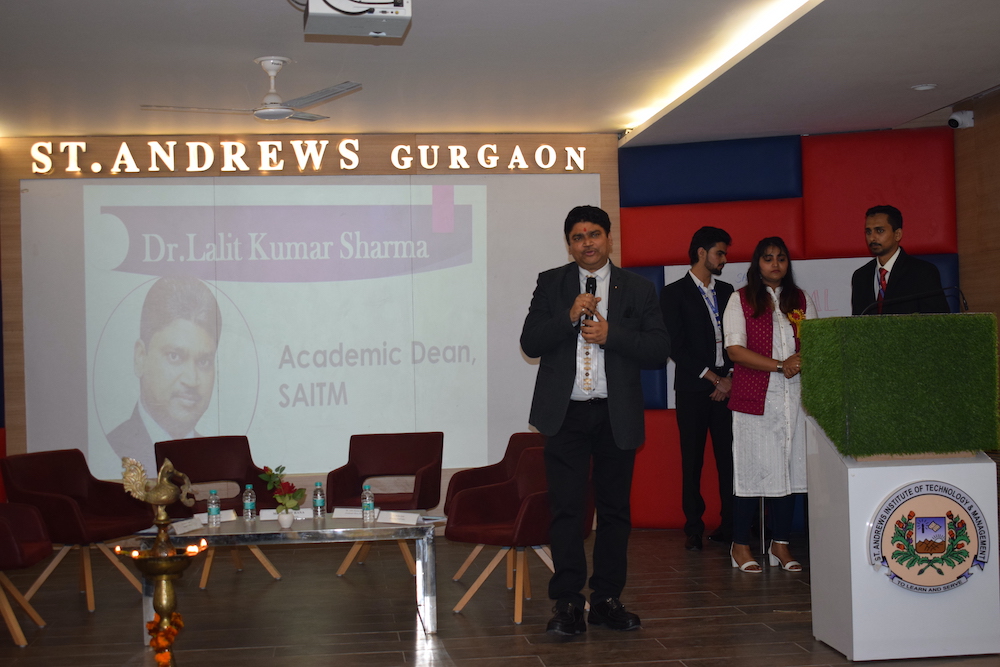
Here are the key details of the course:
Duration
- Four Years: Typically divided into eight semesters.
Core Subjects
- First Year: Common foundational subjects include Mathematics, Physics, Chemistry, Basic Engineering (Mechanics, Electrical, Electronics), and Programming.
- Second to Fourth Year: Branch-specific subjects such as:
- Computer Science Engineering: Data Structures, Algorithms, Operating Systems, Computer Networks, Software Engineering.
- Electrical Engineering: Circuit Theory, Control Systems, Power Systems, Electrical Machines, Power Electronics.
- Mechanical Engineering: Thermodynamics, Fluid Mechanics, Machine Design, Manufacturing Processes, Heat Transfer.
- Civil Engineering: Structural Analysis, Geotechnical Engineering, Transportation Engineering, Environmental Engineering.
Electives and Specializations
- Electives: Offered in the third and fourth years based on the chosen specialization and interest areas.
- Specializations: Students can specialize further in areas like Artificial Intelligence, Robotics, Renewable Energy, Structural Design, etc.
Practical Components
- Laboratories: Hands-on sessions complementing theoretical learning.
- Projects: Includes a final year project focusing on real-world applications and problem-solving.
Additional Components
- Internships: Industry exposure and practical training.
- Workshops and Seminars: Enhances practical knowledge and industry interaction.
- Soft Skills Development: Communication, teamwork, and leadership skills.
Career Opportunities
- Opportunities in various industries including IT, manufacturing, construction, automotive, aerospace, and more.
- Roles such as Software Engineer, Electrical Engineer, Mechanical Engineer, Civil Engineer, Project Manager, etc.
Admission Requirements
- Completion of 12th grade with Physics, Chemistry, and Mathematics (PCM).
- Entrance exams like JEE Main, JEE Advanced, state-level CETs, and university-specific exams.
B Tech Eligibility Criteria
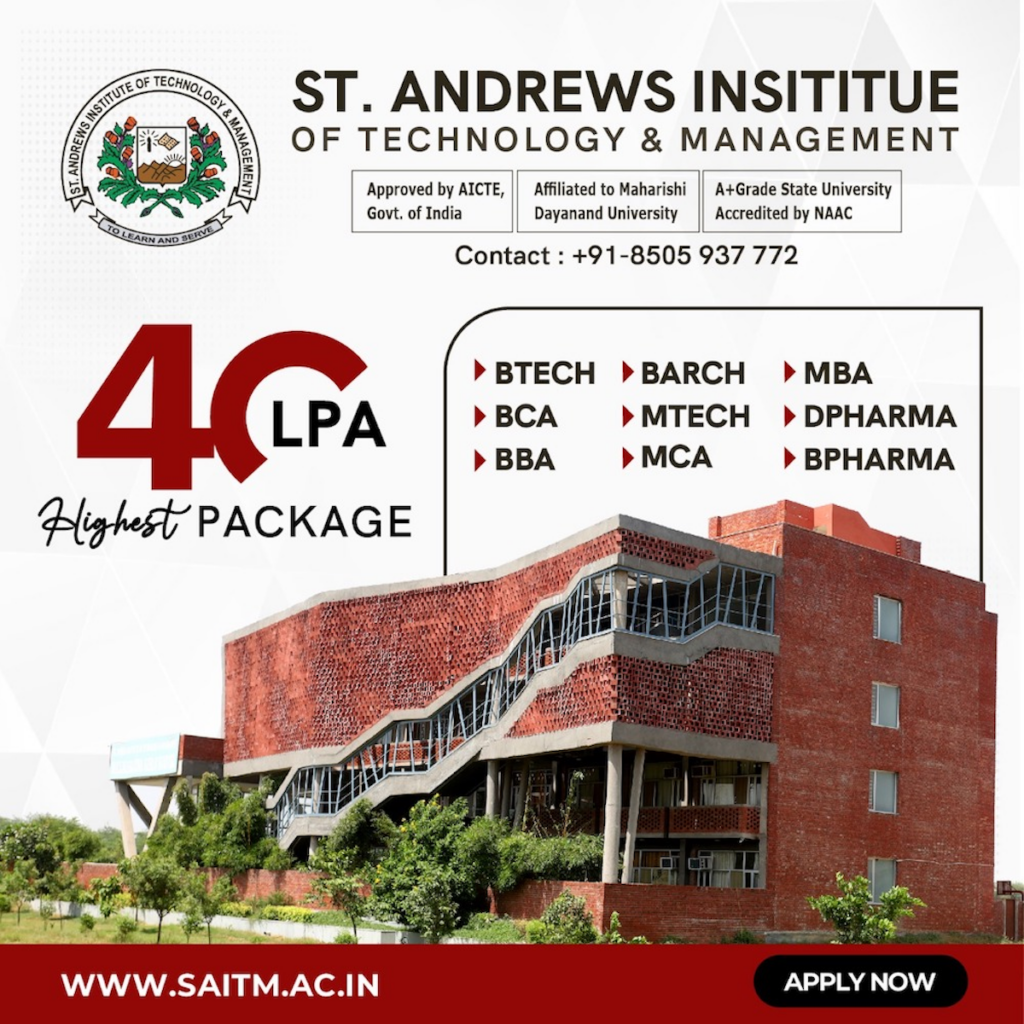
The eligibility criteria for BTech programs typically include:
Academic Qualifications
Completion of 10+2 or its equivalent examination from a recognized board.
Subjects
Must have studied Physics, Chemistry, and Mathematics (PCM) in 10+2.
Minimum Marks
Generally, candidates need to secure a minimum aggregate score in PCM subjects, often ranging from 50% to 75%, depending on the institution and category (General/OBC/SC/ST).
Entrance Exams
Qualifying in national-level entrance exams like JEE Main (for NITs, IIITs, and other centrally funded technical institutions) or state-level exams (like MHT CET, KCET, etc.) or university-specific exams (BITSAT, VITEEE, etc.).
Age Limit
Some institutions may have age restrictions, typically requiring candidates to be under a certain age limit (often around 25 years).
Additional Requirements
Specific universities or states may have additional criteria such as domicile requirements or specific eligibility conditions for reserved categories.
B Tech Admission Process
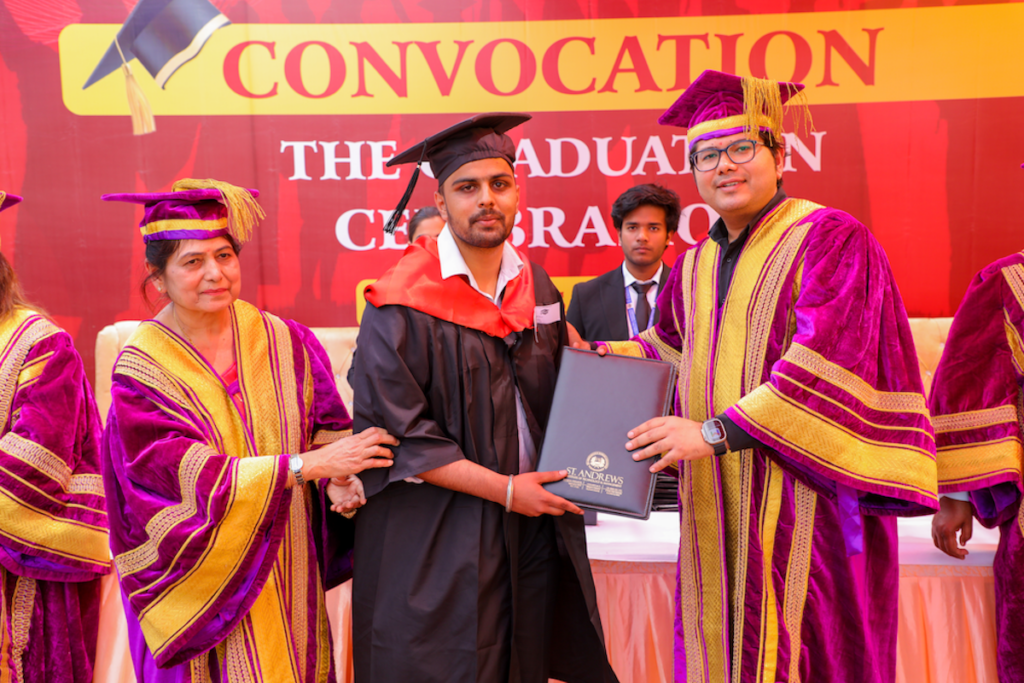
The admission process for BTech typically involves several steps:
Application Form
Candidates must complete the application form for the college or university they wish to apply to. This process is typically done online via the institution’s website.
Entrance Exam
Most BTech admissions are based on entrance exams such as JEE Main, JEE Advanced, state-level CETs (like MHT CET, KCET, etc.), or university-specific exams (BITSAT, VITEEE, etc.). Candidates must register for and appear in the required entrance exams.
Admit Card
After successful registration for the entrance exam, candidates receive an admit card which contains details of the exam date, time, and center.
Exam
Candidates appear for the entrance exam on the scheduled date.
Result Declaration
The exam conducting authority releases the results of the entrance exam, usually indicating the score obtained by each candidate.
Counseling Process
Based on the entrance exam results, candidates who qualify are invited for counseling. During counseling, candidates can select their preferred college and branch based on their rank and the availability of seats.
Seat Allotment
Seats are allocated to candidates based on their entrance exam rank, choices made during counseling, and seat availability in the respective colleges.
Document Verification and Admission
Candidates need to verify their documents (such as 10th and 12th mark sheets, category certificate if applicable, identity proof, etc.) at the time of admission. Once documents are verified, candidates can secure their admission by paying the required fees.
Reporting to College
Finally, candidates must report to the allotted college within the specified time frame to complete the admission formalities and start their academic session.
Top B Tech Entrance Exam
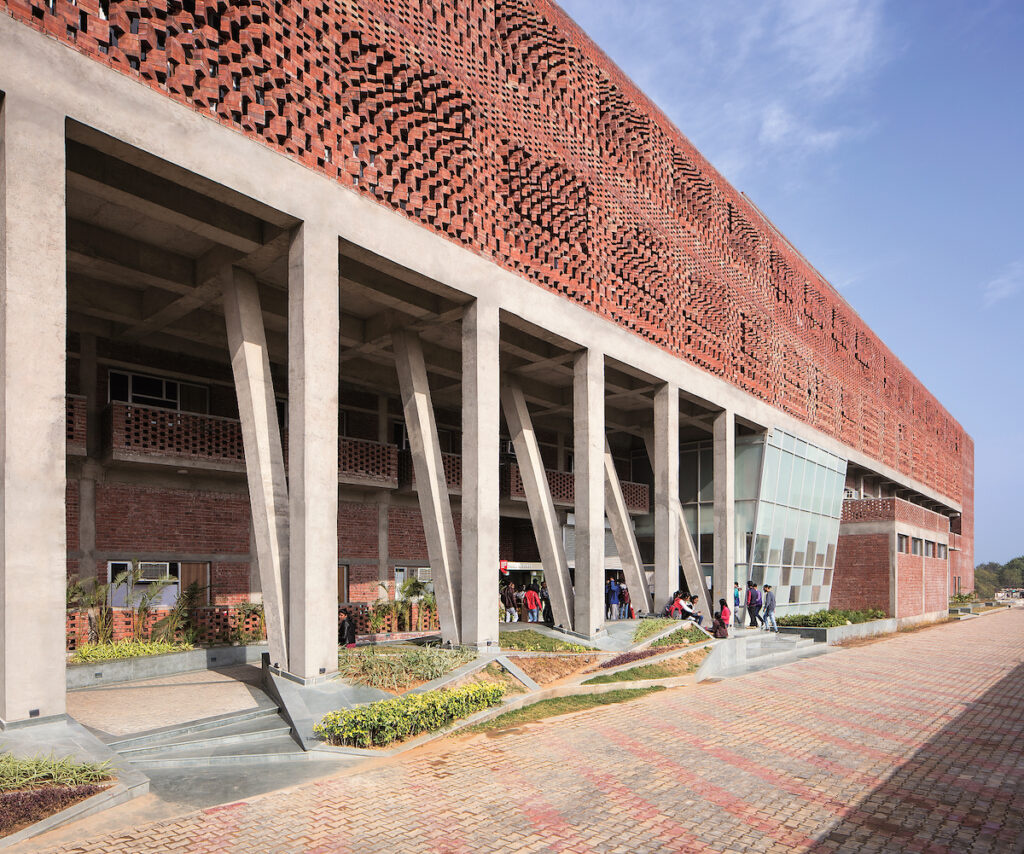
Several top entrance exams for BTech in India are widely recognized and highly competitive. Here are some of the most prominent ones:
JEE Main (Joint Entrance Examination Main)
- Conducted by NTA (National Testing Agency) for admission to NITs, IIITs, and other centrally funded technical institutions across India.
- Also serves as the qualifying exam for JEE Advanced.
JEE Advanced (Joint Entrance Examination Advanced)
- Conducted by IITs (Indian Institutes of Technology) for admission to undergraduate programs offered by the IITs.
BITSAT (Birla Institute of Technology and Science Admission Test)
- Conducted by BITS Pilani for admission to integrated first-degree programs (BE/BTech) at BITS campuses in Pilani, Goa, and Hyderabad.
VITEEE (VIT Engineering Entrance Examination)
- Conducted by VIT University for admission to BTech programs offered at VIT campuses in Vellore, Chennai, Bhopal, and Andhra Pradesh.
MHT CET (Maharashtra Common Entrance Test)
- Conducted by State Common Entrance Test Cell, Maharashtra, for admission to undergraduate engineering programs in Maharashtra.
KCET (Karnataka Common Entrance Test)
- Conducted by Karnataka Examinations Authority (KEA) for admission to engineering courses in colleges across Karnataka.
Top Government Colleges for B Tech in India
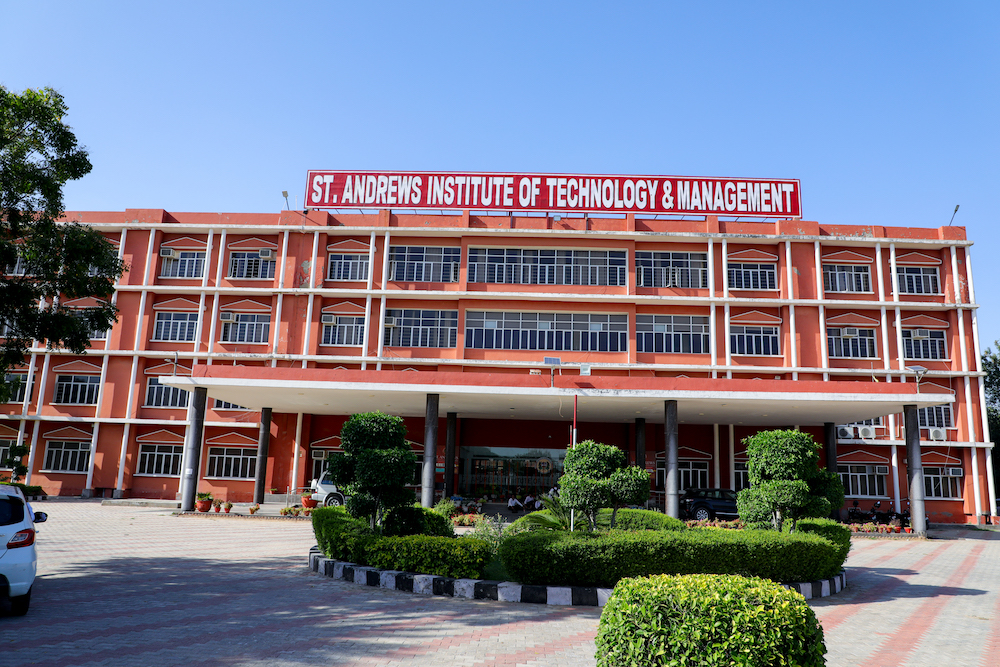
Here is a detailed overview of some of the top government colleges for BTech in India:
1. Indian Institutes of Technology (IITs)
IIT Bombay
- Location: Mumbai, Maharashtra
- Highlights:
- Known for its cutting-edge research facilities and strong entrepreneurial culture.
- High placement rates with top companies recruiting.
- Offers various student exchange programs with renowned international universities.
IIT Delhi
- Location: New Delhi
- Highlights:
- Strong emphasis on research and development.
- Collaborations with numerous global institutions.
- Excellent placement records and industry connections.
IIT Madras
- Location: Chennai, Tamil Nadu
- Highlights:
- Renowned for its research in engineering and technology.
- Hosts several international conferences and workshops.
- Excellent campus infrastructure and facilities.
IIT Kanpur
- Location: Kanpur, Uttar Pradesh
- Highlights:
- Focus on innovative research and interdisciplinary studies.
- State-of-the-art laboratories and research centers.
- Strong alumni network and industry partnerships.
IIT Kharagpur
- Location: Kharagpur, West Bengal
- Highlights:
- Oldest IIT in India, known for its extensive academic programs.
- Hosts various international collaborations and student exchange programs.
- Comprehensive campus with excellent research facilities.
2. National Institutes of Technology (NITs)
NIT Trichy
- Location: Tiruchirappalli, Tamil Nadu
- Highlights:
- Consistently ranked among the top NITs in India.
- Strong focus on technical education and research.
- Excellent placement records with high salary packages.
NIT Surathkal
- Location: Mangalore, Karnataka
- Highlights:
- Known for its beautiful campus and robust academic programs.
- Strong industry connections and internship opportunities.
- Active student community with numerous clubs and organizations.
NIT Rourkela
- Location: Rourkela, Odisha
- Highlights:
- Emphasis on research and innovation.
- Well-equipped labs and research facilities.
- High placement rates with top recruiters visiting the campus.
NIT Warangal
- Location: Warangal, Telangana
- Highlights:
- Known for its strong academic curriculum and faculty.
- Active participation in national and international research projects.
- Good campus placement opportunities.
NIT Calicut
- Location: Calicut, Kerala
- Highlights:
- Strong emphasis on technical education and research.
- Collaboration with various industries and research organizations.
- Active student participation in technical and cultural events.
3. Indian Institute of Science (IISc), Bangalore
- Location: Bangalore, Karnataka
- Highlights:
- Premier institution for advanced scientific and technological research.
- Strong focus on interdisciplinary research and innovation.
- Excellent campus facilities and industry connections.
4. Delhi Technological University (DTU), Delhi
- Location: New Delhi
- Highlights:
- Known for its strong academic programs and faculty.
- Extensive industry connections and excellent placement records.
- Active student community with numerous technical and cultural clubs.
5. St. Andrews Institute of Technology & Management
- Location: Gurgaon, Delhi NCR
- Highlights:
- Renowned for its engineering programs and research output.
- Strong focus on innovation and interdisciplinary studies.
- Excellent campus infrastructure and facilities.
6. Anna University, Chennai
- Location: Chennai, Tamil Nadu
- Highlights:
- Known for its comprehensive engineering programs and research facilities.
- Strong industry partnerships and placement records.
- Active involvement in national and international research projects.
7. Indian Institutes of Information Technology (IIITs)
IIIT Allahabad
- Location: Allahabad, Uttar Pradesh
- Highlights:
- Focus on information technology and allied sciences.
- Strong research programs and industry collaborations.
- Excellent placement opportunities.
IIIT Hyderabad
- Location: Hyderabad, Telangana
- Highlights:
- Known for its strong emphasis on research and innovation in IT.
- Excellent faculty and research facilities.
- High placement rates with top tech companies.
IIIT Bangalore
- Location: Bangalore, Karnataka
- Highlights:
- Strong focus on IT and computer science education.
- Collaboration with leading tech companies and research organizations.
- Excellent placement records and internship opportunities.
8. Jamia Millia Islamia, New Delhi
- Location: New Delhi
- Highlights:
- Offers diverse engineering programs with a strong academic curriculum.
- Focus on research and innovation.
- Good placement records and industry connections.
9. College of Engineering, Pune (COEP)
- Location: Pune, Maharashtra
- Highlights:
- One of the oldest engineering colleges in India with a rich legacy.
- Strong academic programs and research initiatives.
- Active industry collaborations and excellent placement records.
10. Institute of Chemical Technology (ICT), Mumbai
- Location: Mumbai, Maharashtra
- Highlights:
- Renowned for its programs in chemical engineering and technology.
- Strong emphasis on research and development.
- Excellent industry partnerships and placement opportunities.
Top Private Colleges for B Tech in India
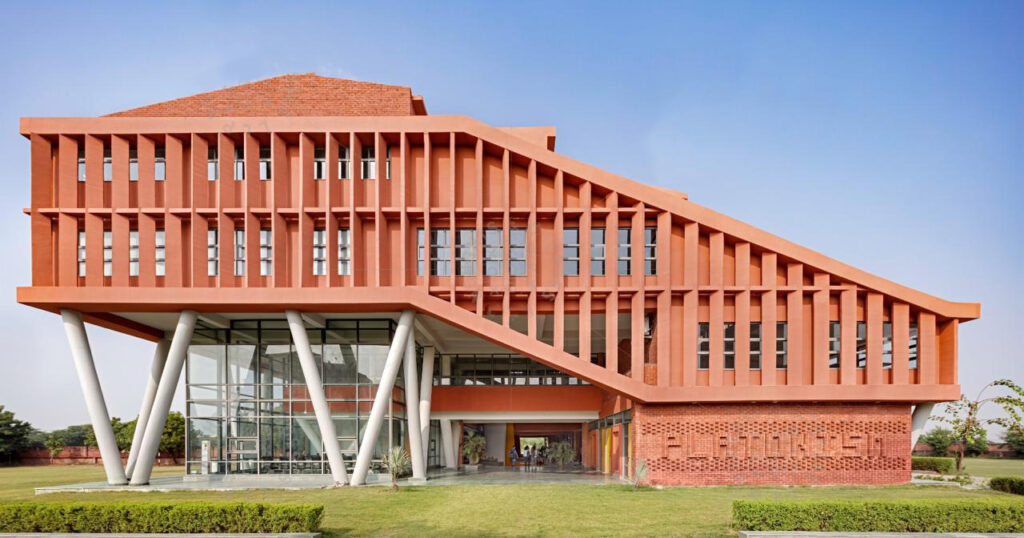
Here is a detailed overview of some of the top private colleges for BTech in India, including their highlights and locations:
1. Birla Institute of Technology and Science (BITS) Pilani
- Location: Pilani, Rajasthan (with campuses in Goa and Hyderabad)
- Highlights:
- Known for its rigorous academic curriculum and strong emphasis on research.
- Excellent placement records with top companies recruiting from campus.
- Offers the Practice School program, which integrates industry experience with academic learning.
- Strong alumni network and global collaborations.
2. St. Andrews Institute of Technology & Management
- Location: Gurgaon, Delhi NCR
- Highlights:
- High ranking for its academic programs and research output.
- Excellent campus infrastructure with modern labs and facilities.
- Strong industry connections and placement records.
- Active student community with numerous clubs and cultural events.
4. Thapar Institute of Engineering and Technology
- Location: Patiala, Punjab
- Highlights:
- Renowned for its strong academic programs and research facilities.
- Collaborations with leading global universities and research institutions.
- Excellent placement records and industry partnerships.
- Focus on innovation and entrepreneurship.
5. Amity School of Engineering and Technology
- Location: Noida, Uttar Pradesh (with campuses in various cities across India)
- Highlights:
- Offers a wide range of engineering programs with strong industry relevance.
- State-of-the-art campus infrastructure and research facilities.
- Good placement records and industry connections.
- Emphasis on holistic development with numerous extracurricular activities.
6. SRM Institute of Science and Technology
- Location: Chennai, Tamil Nadu (with campuses in various cities across India)
- Highlights:
- Known for its comprehensive engineering programs and research output.
- Excellent campus facilities including modern labs and research centers.
- Strong industry collaborations and placement records.
- Active student community with various clubs and events.
7. Kalinga Institute of Industrial Technology (KIIT)
- Location: Bhubaneswar, Odisha
- Highlights:
- Offers diverse engineering programs with a strong academic curriculum.
- Excellent campus infrastructure with advanced research facilities.
- Good placement records with top recruiters visiting the campus.
- Focus on innovation and entrepreneurship.
8. PSG College of Technology
- Location: Coimbatore, Tamil Nadu
- Highlights:
- Known for its strong academic programs and research initiatives.
- Excellent campus facilities including well-equipped labs and libraries.
- Strong industry partnerships and placement records.
- Active involvement in national and international research projects.
9. RV College of Engineering
- Location: Bangalore, Karnataka
- Highlights:
- Renowned for its quality engineering programs and research output.
- Excellent campus infrastructure with modern labs and facilities.
- Strong industry connections and placement records.
- Vibrant student community with numerous clubs and technical events.
10. Sathyabama Institute of Science and Technology
- Location: Chennai, Tamil Nadu
- Highlights:
- Offers a wide range of engineering programs with strong industry relevance.
- State-of-the-art campus facilities and research centers.
- Good placement records with top recruiters visiting the campus.
- Focus on research and innovation.
12. Maharashtra Institute of Technology (MIT)
- Location: Kothrud, Maharashtra
- Highlights:
- Offers diverse engineering programs with a strong academic curriculum.
- Excellent campus infrastructure with advanced research facilities.
- Good placement records with top recruiters visiting the campus.
- Focus on holistic development with numerous extracurricular activities.
13. Chaitanya Bharathi Institute of Technology
- Location: Hyderabad, Telangana
- Highlights:
- Known for its strong academic programs and research initiatives.
- Excellent campus facilities including well-equipped labs and libraries.
- Strong industry partnerships and placement records.
- Active involvement in national and international research projects.
14. SSN College of Engineering
- Location: Chennai, Tamil Nadu
- Highlights:
- Renowned for its quality engineering programs and research output.
- Excellent campus infrastructure with modern labs and facilities.
- Strong industry connections and placement records.
- Vibrant student community with numerous clubs and technical events.
15. Hindustan Institute of Technology and Science
- Location: Chennai, Tamil Nadu
- Highlights:
- Offers a wide range of engineering programs with strong industry relevance.
- State-of-the-art campus facilities and research centers.
- Good placement records with top recruiters visiting the campus.
- Focus on research and innovation.
B Tech Syllabus: Semester-Wise Breakdown
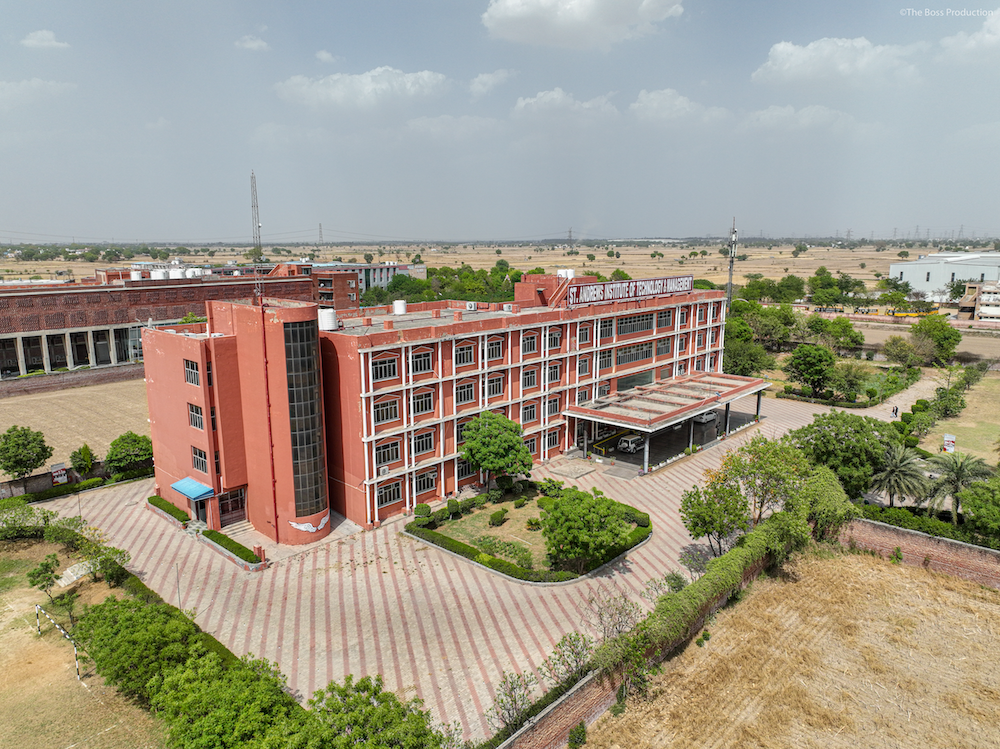
Here’s a semester-wise breakdown of the typical BTech syllabus:
Semester 1
- Mathematics I
- Physics I
- Chemistry
- Engineering Mechanics
- Basic Electrical Engineering
- Environmental Studies
- Workshop Practice
Semester 2
- Mathematics II
- Physics II
- Computer Programming (C or Python)
- Engineering Graphics
- Basic Electronics Engineering
- Communication Skills
Semester 3
- Mathematics III
- Electrical Circuit Analysis
- Digital Electronics
- Object-Oriented Programming
- Analog Electronics
- Electromagnetic Field Theory
Semester 4
- Numerical Methods
- Signals and Systems
- Data Structures and Algorithms
- Control Systems
- Microprocessors and Microcontrollers
- Industrial Training/Internship
Semester 5
- Operating Systems
- Database Management Systems
- Computer Networks
- Power Systems
- Machine Design
- Elective I
Semester 6
- Software Engineering
- Artificial Intelligence
- Renewable Energy Sources
- Robotics
- Structural Analysis
- Elective II
Semester 7
- Project Management
- VLSI Design
- Optimization Techniques
- Advanced Manufacturing Processes
- Transportation Engineering
- Elective III
Semester 8
- Project Work (Major Project)
- Seminar
- Entrepreneurship Development
- Professional Ethics and Human Values
B Tech Lab Subjects
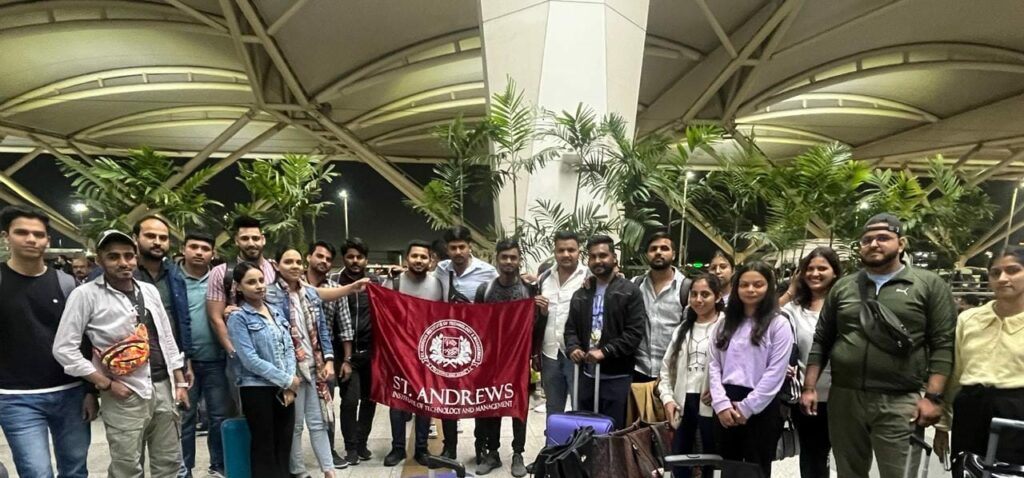
Here are some common lab subjects across various disciplines:
Computer Science Engineering (CSE)
Programming Lab (C, C++, Java, etc.)
Data Structures Lab
Database Management Systems Lab
Computer Networks Lab
Software Engineering Lab
Web Technology Lab
Electronics and Communication Engineering (ECE)
Analog Electronics Lab
Digital Electronics Lab
Communication Systems Lab
Microprocessor Lab
VLSI Design Lab
Microwave Engineering Lab
Electrical Engineering (EE)
Electrical Machines Lab
Power Electronics Lab
Control Systems Lab
Power Systems Lab
Measurements and Instrumentation Lab
Renewable Energy Lab
Mechanical Engineering (ME)
Strength of Materials Lab
Fluid Mechanics and Machinery Lab
Manufacturing Technology Lab
CAD/CAM Lab
Heat Transfer Lab
Metrology and Quality Control Lab
Civil Engineering (CE)
Surveying Lab
Concrete Technology Lab
Soil Mechanics Lab
Structural Analysis Lab
Environmental Engineering Lab
Transportation Engineering Lab
Chemical Engineering (ChemE)
Chemical Reaction Engineering Lab
Heat Transfer Operations Lab
Mass Transfer Operations Lab
Process Control Lab
Fluid Mechanics Lab
Environmental Engineering Lab
Biotechnology Engineering (BioTech)
Biochemistry Lab
Microbiology Lab
Bioprocess Engineering Lab
Genetic Engineering Lab
Immunology Lab
Bioinformatics Lab
Aerospace Engineering
Aerodynamics Lab
Aircraft Structures Lab
Propulsion Lab
Avionics Lab
Flight Dynamics Lab
Space Technology Lab
B tech syllabus: Top Specializations
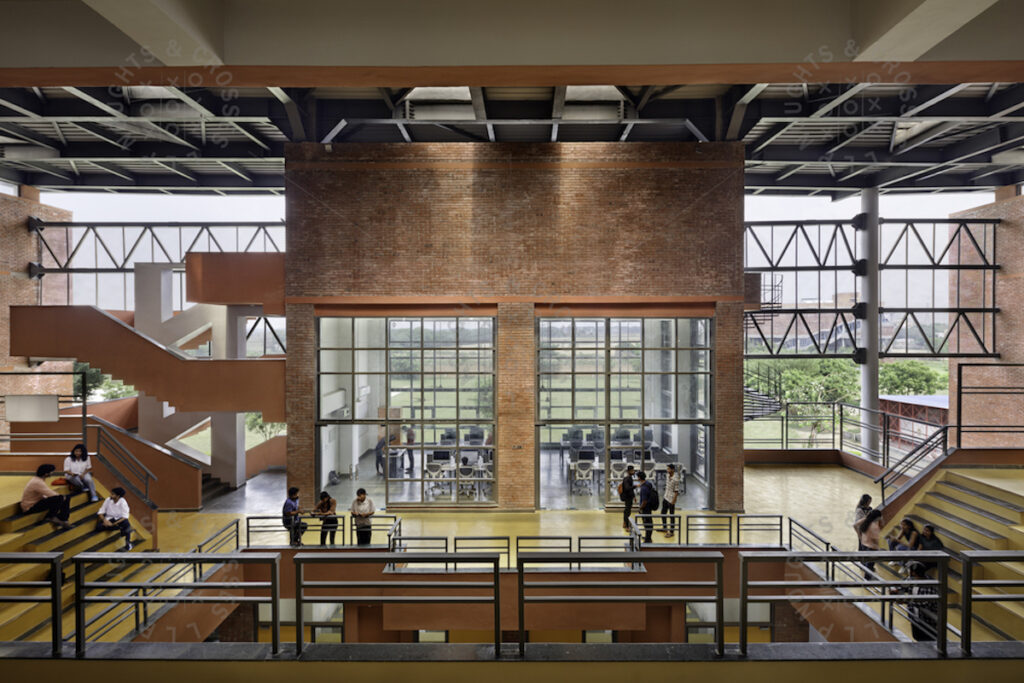
Here are some common specializations available in B.Tech programs:
Computer Science Engineering (CSE)
- Artificial Intelligence
- Machine Learning
- Data Science
- Cyber Security
- Cloud Computing
Electronics and Communication Engineering (ECE)
- VLSI Design
- Embedded Systems
- Communication Systems
- Signal Processing
- Internet of Things (IoT)
Electrical Engineering (EE)
- Power Systems
- Control Systems
- Power Electronics
- Renewable Energy
- Electrical Machines
Mechanical Engineering (ME)
- Thermal Engineering
- Manufacturing Engineering
- Automobile Engineering
- Robotics and Automation
- Aerospace Engineering
Civil Engineering (CE)
- Structural Engineering
- Environmental Engineering
- Transportation Engineering
- Geotechnical Engineering
- Construction Management
Chemical Engineering (ChemE)
- Process Engineering
- Petrochemical Engineering
- Environmental Engineering
- Food Technology
- Biochemical Engineering
Biotechnology Engineering (BioTech)
- Genetic Engineering
- Bioinformatics
- Bioprocess Engineering
- Medical Biotechnology
- Pharmaceutical Engineering
Aerospace Engineering
- Aerodynamics
- Aircraft Design
- Avionics
- Space Technology
- Satellite Communication
Instrumentation and Control Engineering
- Control Systems Engineering
- Instrumentation Engineering
- Industrial Automation
- Robotics
Information Technology (IT)
- Software Engineering
- Information Security
- Web Technologies
- Mobile Application Development
- Cloud Computing
Career Opportunity for Btech Graduates
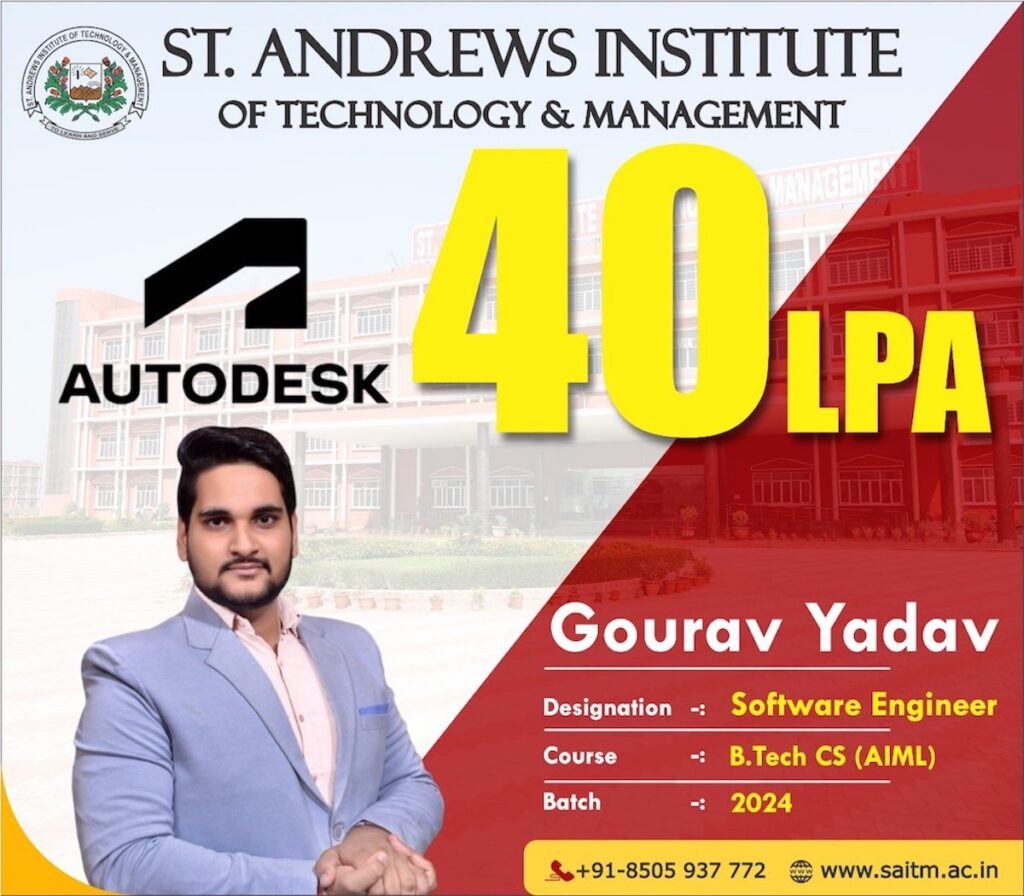
Some common career paths include:
Software Engineer/Developer
In roles involving software development, coding, testing, and maintenance of applications and systems.
Network Engineer
Designing, implementing, and maintaining computer networks within organizations.
Electronics Engineer
Working on design, development, testing, and maintenance of electronic equipment and systems.
Mechanical Engineer
Designing and manufacturing mechanical systems, machinery, and equipment.
Civil Engineer
Designing and overseeing construction projects such as buildings, roads, bridges, and infrastructure.
Electrical Engineer
Designing and developing electrical systems, equipment, and devices.
Data Scientist
Analyzing and interpreting complex data to inform business decisions and strategies.
Biotechnologist
Applying biological principles and techniques in industries such as pharmaceuticals, healthcare, and agriculture.
Aerospace Engineer
Designing and testing aircraft, spacecraft, and related equipment and systems.
Environmental Engineer
Addressing environmental challenges through engineering solutions in areas like pollution control, waste management, and sustainable development.
Project Manager
Overseeing and managing engineering projects, ensuring they are completed on time and within budget.
Consultant
Providing specialized expertise and advice to organizations or clients in various engineering disciplines.
Entrepreneur
Starting their own engineering ventures or tech startups based on innovative ideas and solutions.
B tech Syllabus: Core Subjects
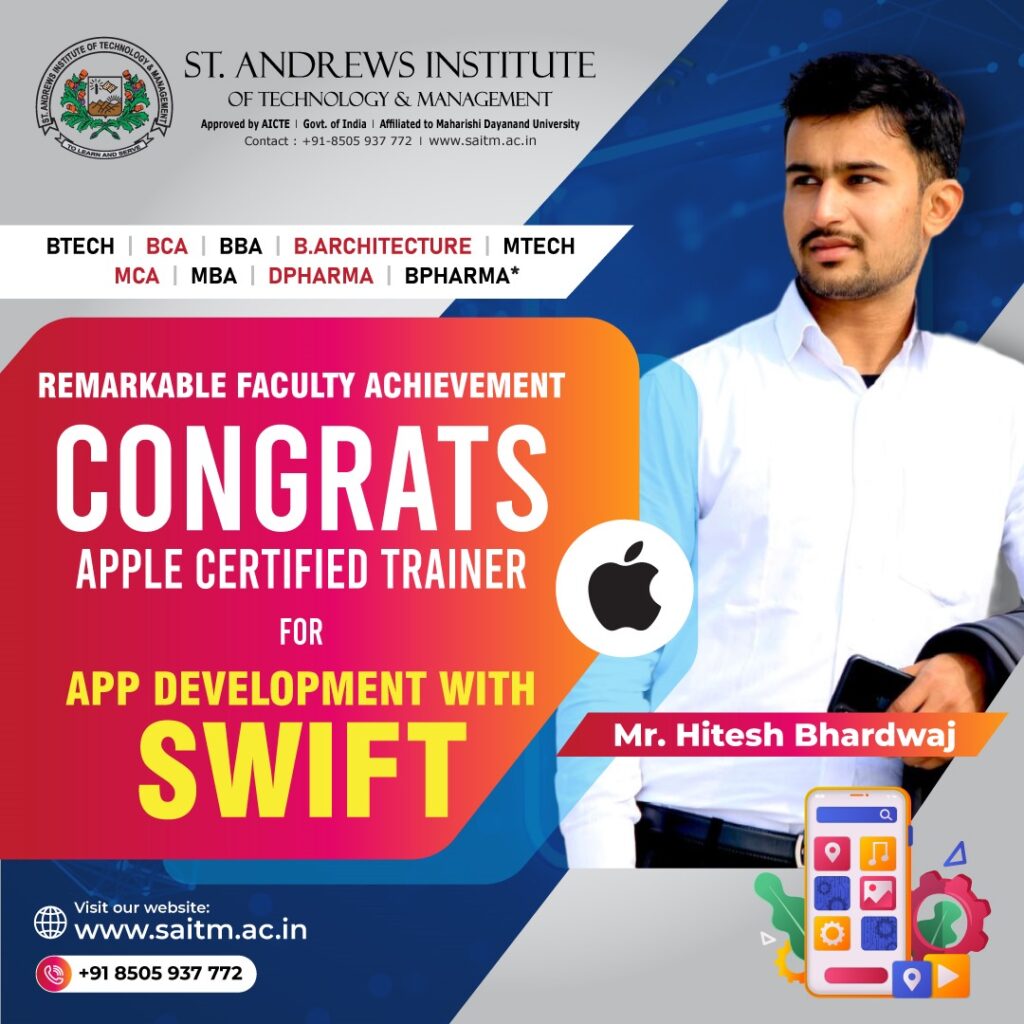
Here are some common core subjects across various B.Tech specializations:
Engineering Mathematics
Calculus, Linear Algebra, Differential Equations, Probability and Statistics.
Basic Sciences
Physics, Chemistry, and Biology (for some branches).
Engineering Mechanics
Statics, Dynamics, Strength of Materials.
Basic Electrical and Electronics Engineering
Circuit Theory, Electrical Machines, Power Systems.
Computer Programming
C Programming, Data Structures, Algorithms.
Mechanical Engineering Core Subjects
Thermodynamics, Fluid Mechanics, Manufacturing Processes.
Civil Engineering Core Subjects
Structural Analysis, Geotechnical Engineering, Transportation Engineering.
Electrical Engineering Core Subjects
Electromagnetic Field Theory, Control Systems, Power Electronics.
Electronics and Communication Engineering Core Subjects
Analog and Digital Electronics, Communication Systems, VLSI Design.
Computer Science Engineering Core Subjects
Object-Oriented Programming, Database Management Systems, Operating Systems, Computer Networks.
Top Recruiters for B.Tech Graduates
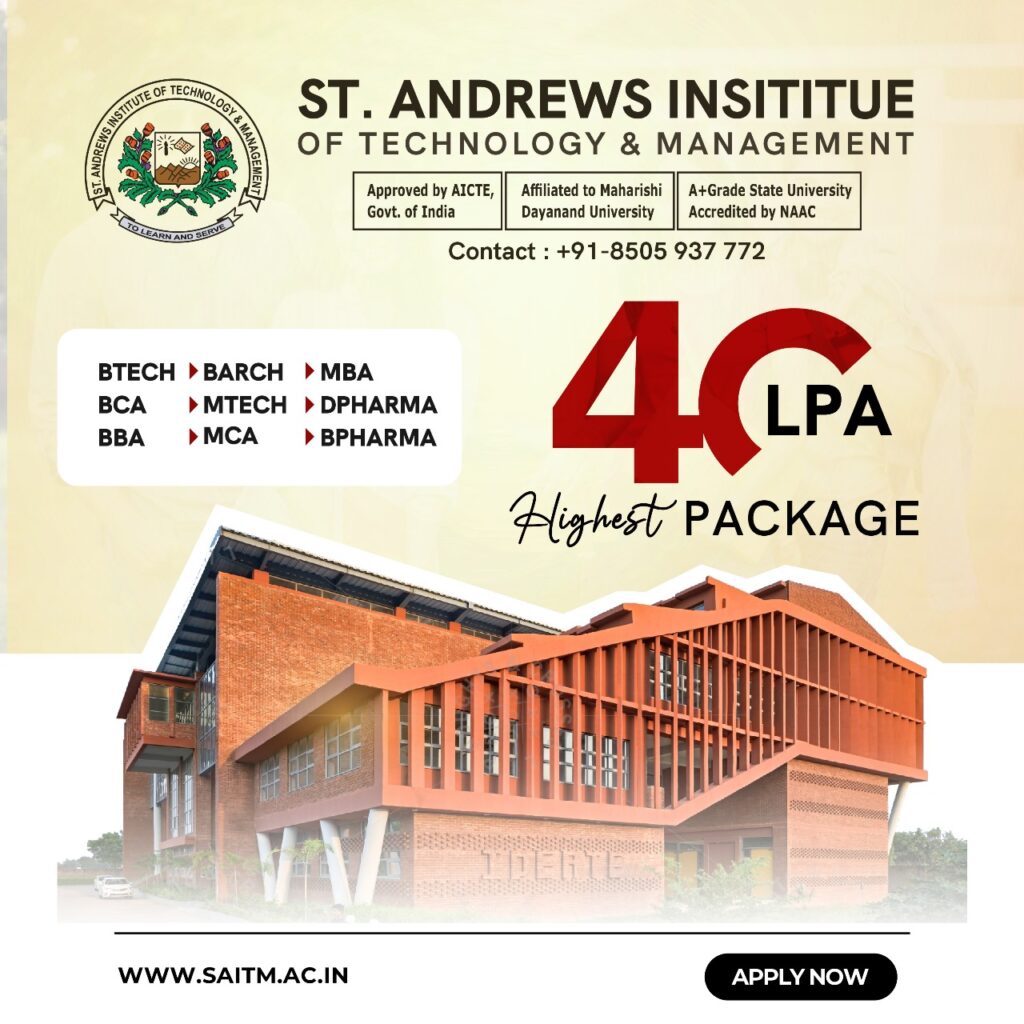
Some of the prominent companies and sectors that regularly hire B.Tech graduates include:
Information Technology (IT) Companies
TCS (Tata Consultancy Services)
Infosys
Wipro
HCL Technologies
Accenture
Cognizant
Engineering and Manufacturing Companies
Larsen & Toubro (L&T)
Tata Motors
Mahindra & Mahindra
BHEL (Bharat Heavy Electricals Limited)
Siemens
Maruti Suzuki
Consulting and Analytics Firms
Deloitte
Ernst & Young (EY)
PwC (PricewaterhouseCoopers)
KPMG
McKinsey & Company
Boston Consulting Group (BCG)
Telecommunication Companies
Reliance Jio
Bharti Airtel
Vodafone Idea
Financial Services and Banking
HDFC Bank
ICICI Bank
Axis Bank
State Bank of India (SBI)
Goldman Sachs
JP Morgan Chase
E-commerce and Technology Giants
Amazon
Flipkart
Microsoft
Apple
Automobile Industry
Ford
General Motors
Toyota
Honda
BMW
Mercedes-Benz
Energy and Utilities
ONGC (Oil and Natural Gas Corporation)
NTPC (National Thermal Power Corporation)
Power Grid Corporation of India
Shell
ExxonMobil
Pharmaceutical and Biotechnology Companies
Pfizer
Novartis
Biocon
Dr. Reddy’s Laboratories
GlaxoSmithKline (GSK)
Government Organizations and PSUs
ISRO (Indian Space Research Organisation)
DRDO (Defence Research and Development Organisation)
BSNL (Bharat Sanchar Nigam Limited)
BARC (Bhabha Atomic Research Centre)
NPCIL (Nuclear Power Corporation of India Limited)
Salary For B tech Graduates
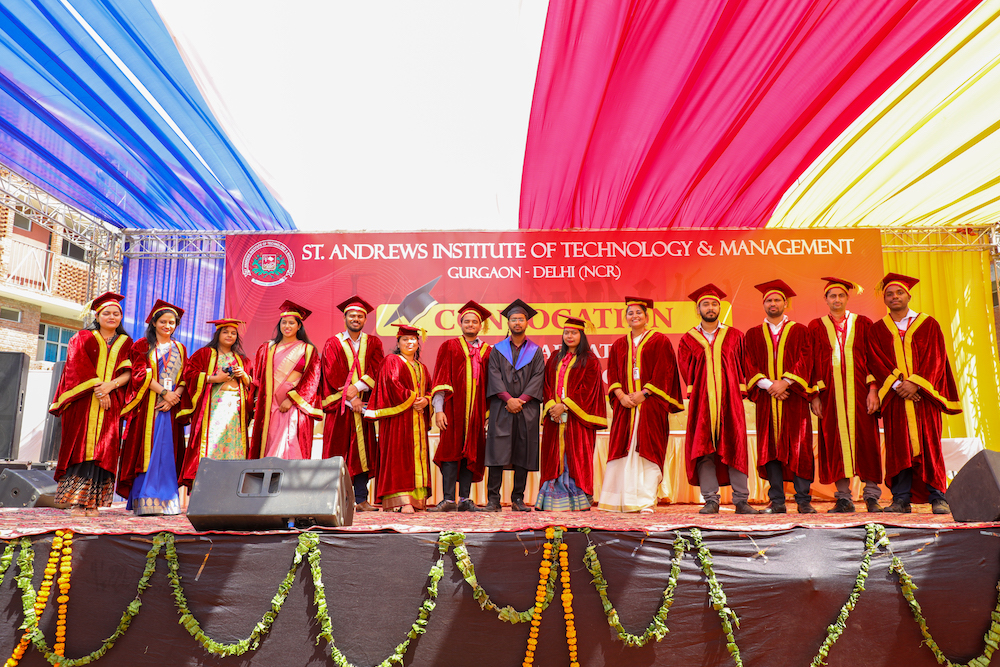
Here’s a general overview of salary ranges for B.Tech graduates in India:
Freshers (Entry-Level Positions)
- IT and Software Engineering: Typically ranges from ₹3.5 lakhs to ₹6 lakhs per annum.
- Core Engineering (Mechanical, Civil, Electrical): Generally ranges from ₹3 lakhs to ₹5 lakhs per annum.
- Electronics and Communication: Can range from ₹3.2 lakhs to ₹5.5 lakhs per annum.
- Other Specializations: Salary ranges can vary but generally align with similar figures based on demand and industry standards.
Mid-Level Positions (2-5 years of experience)
- Salaries for mid-level positions can range significantly based on specialization and industry but typically can be expected to be in the range of ₹6 lakhs to ₹12 lakhs per annum or higher, depending on the factors mentioned above.
Senior-Level Positions (5+ years of experience)
- IT and Software Engineering: Salaries can range from ₹10 lakhs to ₹20 lakhs per annum or more, depending on the role and responsibilities.
- Core Engineering: Similar ranges apply, with senior engineers in specialized fields potentially earning higher salaries based on expertise and experience.
Specialized Roles and Industries
- Consulting, Management, and Leadership Roles: Salaries can vary widely based on the company and level of responsibility, often ranging from ₹15 lakhs to ₹30 lakhs per annum or more.
- High-demand sectors like AI, Machine Learning, Data Science: Salaries can start from ₹6 lakhs and can go up significantly with experience and expertise, sometimes exceeding ₹20 lakhs per annum in senior roles.
Location Impact
- Salaries tend to be higher in metropolitan cities like Bengaluru, Mumbai, Hyderabad, and Delhi-NCR due to higher living costs and demand for skilled professionals.
FAQs
What are the core subjects and elective subjects in B Tech?
Core Subjects: B.Tech programs typically include core subjects such as Mathematics, Physics, Chemistry, Computer Programming, Engineering Mechanics, Electrical Engineering, and Electronics. Specialized core subjects vary by branch, such as Data Structures and Algorithms in Computer Science, Thermodynamics in Mechanical Engineering, and Circuit Analysis in Electrical Engineering.
Elective Subjects: Electives allow students to explore areas of interest. Examples include Artificial Intelligence, Machine Learning, Robotics, Nanotechnology, Environmental Engineering, Cybersecurity, and Internet of Things (IoT). Elective options vary by institution and branch, enabling students to tailor their education to their career goals.
What is the syllabus of BTech?
The B Tech syllabus of a program typically starts with core subjects like mathematics, physics, and chemistry in the first year, laying a solid foundation for all students. From the second year onward, the syllabus shifts focus to branch-specific courses, allowing students to specialize in areas of their interest.
For Computer Science Engineering, the curriculum includes subjects such as data structures, algorithms, computer networks, operating systems, database management systems, software engineering, artificial intelligence, and machine learning.
Additionally, the B Tech syllabus often encompasses electives, labs, workshops, internships, and a final year project. The curriculum is designed to impart a comprehensive understanding of engineering principles, enhance technical skills, and provide practical knowledge relevant to the chosen specialization.
What are the subjects in 1 year BTech?
In the first year of a BTech program, the B Tech syllabus typically includes foundational subjects common across all engineering disciplines. Students engage in courses such as Mathematics, Physics, Chemistry, and Basic Engineering disciplines like Engineering Mechanics, Civil Engineering, Chemical Engineering, Communication Engineering, and Engineering Graphics. Additionally, there is an emphasis on developing programming skills, often through introductory courses in C or Python.
Additionally, courses in Communication Skills, Environmental Science, and Basic Electrical and Electronics Engineering are often part of the curriculum. Practical sessions, including laboratory work related to these subjects, are integral to the first-year syllabus, providing hands-on experience to complement theoretical learning.
Which subject is best for BTech?
The best BTech course depends on individual interests and career goals. Computer Science Engineering (CSE) is highly popular due to the demand for tech professionals and opportunities in software development, AI, and cybersecurity. Electrical and Electronics Engineering (EEE) offers diverse career paths in power systems, electronics, and telecommunications.
Mechanical Engineering, featured in the B Tech syllabus, is perfect for those drawn to machinery and manufacturing processes. Civil Engineering appeals to those passionate about construction and infrastructure projects. Emerging fields within the B Tech syllabus such as Artificial Intelligence, Data Science, and Biotechnology also present promising career prospects. Selecting the best subject should consider your interests, strengths, and the industry’s future scope.
What is BTech engineering?
BTech, or Bachelor of Technology, is an undergraduate academic degree awarded in the field of engineering and technology. Typically spanning four years, the program combines theoretical knowledge and practical skills across various engineering disciplines such as Computer Science, Electrical, Mechanical, Civil, and Electronics. The curriculum includes core courses, specialized electives, labs, workshops, internships, and a final year project.
BTech aims to equip students with the technical expertise, problem-solving abilities, and hands-on experience needed to excel in engineering careers or pursue advanced studies in their chosen field.
How can I do BTech after 12th?
To pursue a BTech after the 12th grade, you should first complete your 12th with Physics, Chemistry, and Mathematics (PCM) as core subjects. As you delve into the B Tech syllabus, prepare for engineering entrance exams such as JEE Main, JEE Advanced, or state-level exams like MHT CET and KCET, as well as exams for private universities like BITSAT and VITEEE. Your admissions to engineering colleges will be based on the scores from these entrance exams.
btech courses btech entrance exams tech colleges work integrated learning programmes btech syllabus

